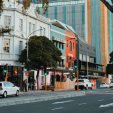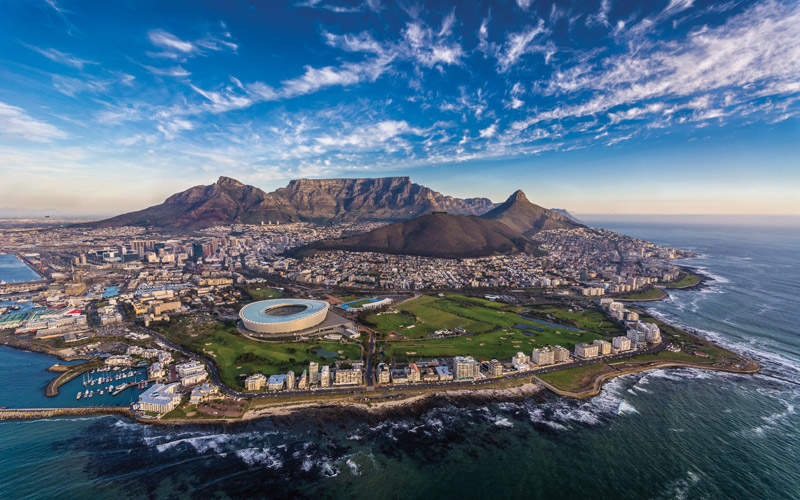Yes, there’s wine, but also art, yoga, cooking classes & kudu macarons
Mokena Makeka talks design
We don't just make things pretty. We make things work better. That is design.
The World Design Capital 2014 title was announced in Taipei on 26 October at 6am local time. We talked to Mokena Makeka about it, before we won. Mokena Makeka is an award-winning architect who started Makeka Design Lab which aims to create a sound African aesthetic.
How are you involved in Cape Town’s World Design Capital 2014 bid?
I am bid committee member and one of two official spokespersons. I am a passionate advocate of design and have founded a new museum to celebrate design, innovation, leadership and art, called MoDILA. I also serve on the Cape Town Design Network.
There is a lot of positivity and optimism amongst Capetonians about the bid. Do you think there will be a lasting effect, especially on the design community, even if we don’t win?
Designer's have been and always will be ahead of the curve. We are a community that sees this bid as part of process stretching as far back as 1994 to locate design as a solution to our country‘s problems. Back then, various TV shows and magazines started to pay attention to design- we were resolute and knew that society would catch up to the power of design. Whether we win or lose, designers will stay the course. If we could survive the dark ages of an ignorant yesteryear we can face anything. Designers are up to the challenge and will put this city on the global map, this is an unstoppable train. Losing is not in our vocabulary, because every problem has a design solution or outlook.
If we do win, what's the next step, what will happen?
Hopefully government will invest in public private partnerships to advance and use design to address social, spatial and delivery challenges. Design will be used to interpret and understand our challenges not merely find solutions. Design thinking at a broader level will encourage a more open and socially intelligent society. The state must use the private sector and the creativity found outside of government structures in real partnerships. The public should demand higher standards of service delivery using design and quality as a foregrounded concern. The task increases for us all, should we win, because only through the projects and processes we deliver and it's impacts, can we prove that design is necessary to transform our lives. Marketing design is a small and frankly easy component. Design must actually be present and not just spoken about in terms of the what, the where and the how of what we do. We must be an example to ourselves and others.
What is something close to your heart that you would like to push in 2014?
Modila is a centre of excellence for design education and celebration of our ingenuity in dialogue with global excellence. Through our outreach programs and the desire to create a temple for design excellence and innovation, Modila seeks to become a global platform for the knowledge economy and high impact entrepreneurs. It will form a key aspect of 2014 and beyond. We intend to host a design Olympiad. The Cape Town Design Network is very close to my heart as I have always felt designers should drive the design agenda rather than leaving it to passionate surrogates. (No offense to supporters at all...) I am happy to be part of this special family - I have found my cousins in arms... expect great things from the network. Design education at the formal and informal level is critical to the success of any human, and just society. Design makes the chore of life bearable, and sometimes pleasant.
What do you think Cape Town has to offer in terms of design that is unique?
Our eclectic, bohemian, and rigorous design community. We are blessed with world class talent that the public has barely accessed. The potential for change through design and Cape Town designers in particular is vast. But until design is used as a filter to determine service delivery, and the state apparatus builds excellence into its procurement policies with standard and uniform pricing for design services this potential will remain untapped. The cheapest quotes will predominate in our service delivery mechanisms. And this encourages mediocrity and fruitless expenditure in the long term and serves short term interests. Short term competitiveness can easily make us uncompetitive in the long term. Our designers can turn this city around within 200 days, if design thinking facilitates and provides solutions.
Believe it or not other cities have done this. We are unique in that we can achieve change if designers are located properly in the hierarchy of decision making. We don't just make things pretty. We make things work better. That is design.
by Antonia Heil
To stay in the Cape Town loop subscribe to our newsletter and connect to us on Facebook and Twitter.








